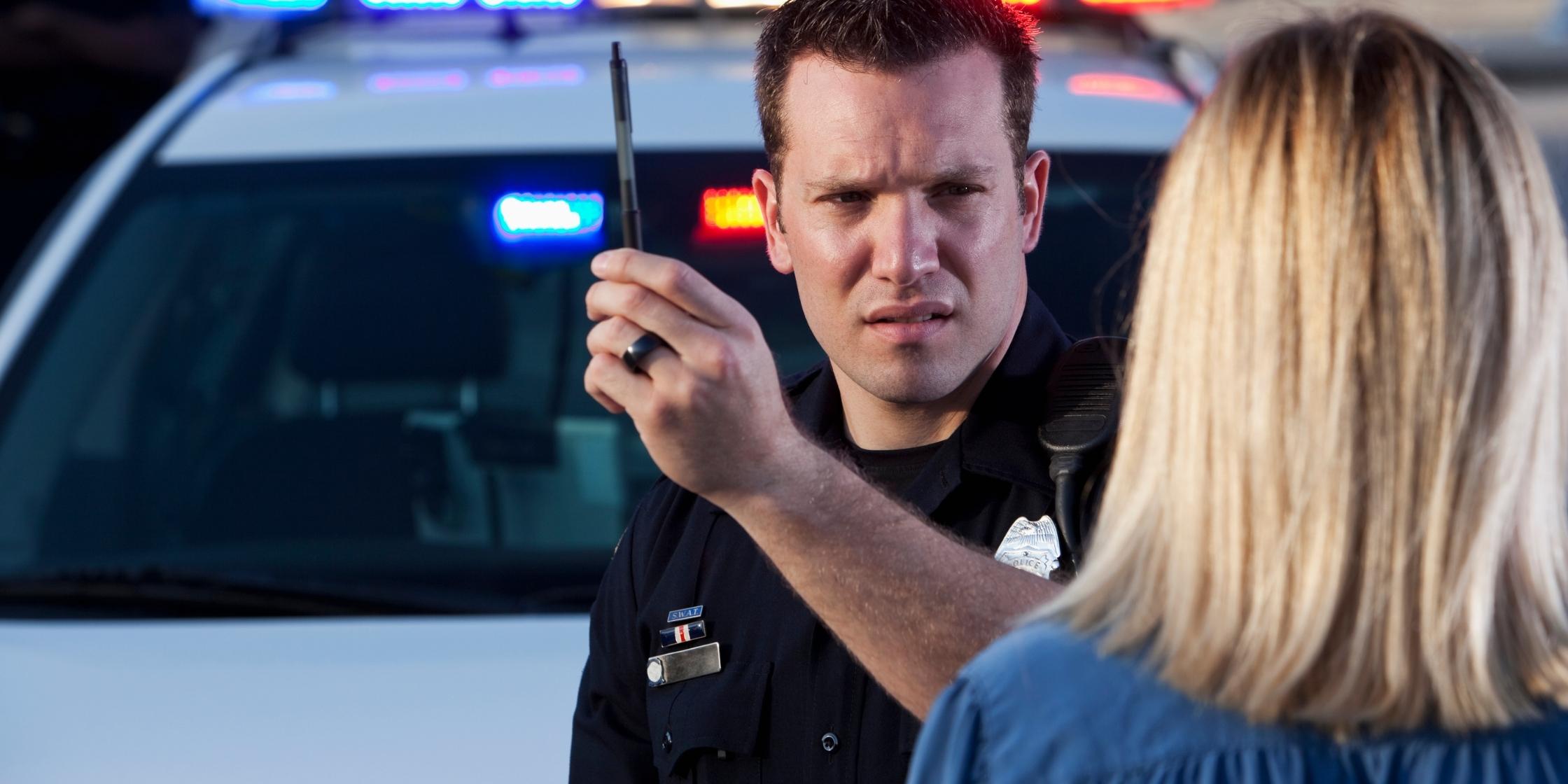Field sobriety tests (FSTs) are routinely used by Colorado law enforcement officers to determine whether a driver is impaired by alcohol or drugs. Knowing exactly how these tests work, their accuracy, and their legal implications in DUI cases is crucial for protecting your rights. Colorado Springs DUI Attorney Joe Maher has completed the SFST participant and instructor course. He challenges the FSTs vigorously in court.
What Are Field Sobriety Tests and How Do They Work?
Have you ever wondered exactly what happens during field sobriety tests? When an officer suspects alcohol or drug impairment during a traffic stop, they typically administer these tests. The tests evaluate your coordination, balance, and ability to follow instructions and divide attention, offering possible evidence of impairment.
The National Highway Traffic Safety Administration (NHTSA) recognizes three standardized tests:
- Horizontal Gaze Nystagmus (HGN) Test: Officers watch for involuntary eye jerking as you follow a moving object, like a pen.
- Walk-and-Turn Test: Assesses balance and coordination as you walk heel-to-toe along a straight line, turn on one foot, and walk back.
- One-Leg Stand Test: Tests your balance by having you stand on one leg for a specified time.
How Accurate Are Field Sobriety Tests?
Field sobriety tests, although widely used, aren’t flawless. Environmental conditions, officer training, and your physical or medical conditions significantly influence their reliability as evidence.
NHTSA claims the following about the test accuracy when administered and interpreted correctly
- HGN Test Accuracy: Generally, around 77-88% accurate in predicting impairment at or above the legal limit (BAC 0.08).
- Walk-and-Turn & One-Leg Stand Tests Accuracy: Typically have lower accuracy rates, roughly 65-75%.
Given these variances, sobriety test results often face robust challenges in court.
Can You Refuse a Field Sobriety Test in Colorado?
Colorado law does not require participation in the standardized field sobriety tests (this includes preliminary breath testing). However, an officer can – and probably will – make an arrest for DUI based on the officer’s observations alone. Once an arrest for DUI occurs, the officer can require the driver to provide a chemical test sample (breath or blood tests). Refusing a chemical test after an arrest will trigger automatic penalties such as driver’s license suspension.
Considering these implications, consulting an experienced DUI attorney is always advisable.
Common Factors That Can Skew Field Sobriety Test Results
Several external and personal factors can adversely impact your test performance:
- Medical Conditions: Inner ear disorders, neurological disorders, vertigo, or even prescription medications can severely affect your balance and coordination.
- Environmental Conditions: Poor lighting, uneven or slippery surfaces, and adverse weather conditions may hinder performance unfairly.
- Officer Administration Errors: Incorrect instructions or deviation from standard testing procedures can invalidate test results.
How Field Sobriety Tests Influence DUI Charges in Colorado
Performance of field sobriety tests often leads directly to arrest and DUI charges, significantly impacting your driving privileges, liberty, employment, insurance premiums, and personal life.
However, an officer’s assessment of your performance of these tests doesn’t automatically equate to guilt. Due to their subjective nature, experienced legal counsel familiar with Colorado DUI laws can effectively challenge these test results and potentially even turn them in your favor. Colorado Springs DUI Attorney Joe Maher has completed the SFST participant and instructor course. He challenges the FSTs vigorously in court.
Key Facts to Remember
- Approximately 1.5 million Americans are arrested annually for DUI charges, with Field Sobriety Tests serving as critical evidence in many cases. (FBI Uniform Crime Reporting, 2021)
- Studies indicate that standard field sobriety tests might produce false positives in about 30% of cases due to subjective interpretations and external factors. (National Center for Biotechnology Information)
FAQs About Field Sobriety Tests in Colorado
Q: Can I be arrested for DUI based only on sobriety test performance?
A: Yes, an officer’s opinion of poor performance can lead directly to arrest; however, results can be challenged.
Q: What happens if I refuse field sobriety tests?
A: You can refuse, but officers may arrest based on suspicion alone, and refusal can trigger penalties like license suspension.
Final Thoughts
Field sobriety tests play a pivotal role in DUI assessments in Colorado. Understanding their limitations, the factors influencing results, and your legal rights empowers you to make informed decisions if faced with this scenario.
Facing DUI Charges in Colorado? Protect Your Future Now.
Don’t risk losing your driving privileges, employment, or personal freedom by navigating DUI charges alone. Maher and Maher Law’s experienced attorneys provide:
- Rapid, personalized legal support
- Expert strategies to effectively challenge sobriety test results
- Proven success in achieving favorable outcomes
Act swiftly to secure your defense.
